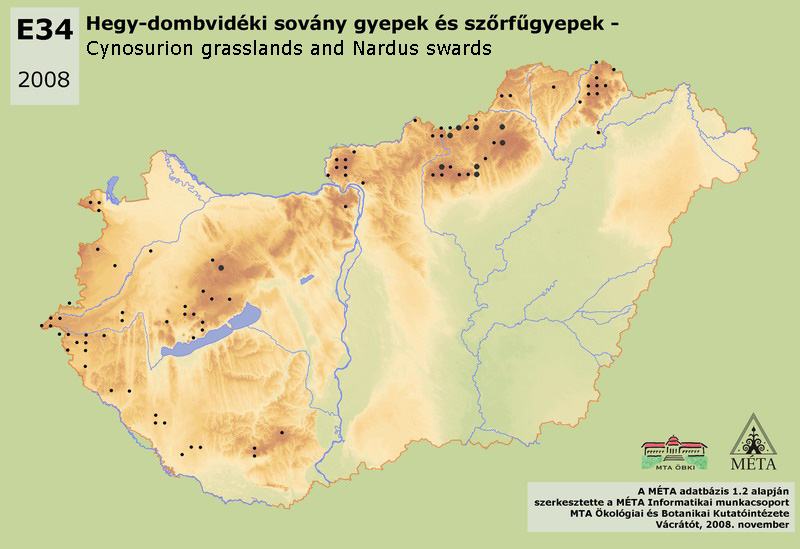MÉTA Program >>> Habitat distribution maps


E34 – Cynosurion grasslands and Nardus swards:
Theses grasslands (occurring in humid collin-submontane regions on nutrient-poor, acid soils) developed due to the cutting and grazing of former forests. This acidofrequent grass vegetation is dominated by acidofrequent-mycotrophic, low or medium-tall grasses with good sprouting ability; Agrostis capillaris, Festuca rubra agg. F. nigrescens, Sieglingia (Danthonia) decumbens, Festuca ovina, F. filiformis, Nardus stricta. Its actual area in the country is around 600 ha. It occurs mainly in the higher or cooler mountains of the Északi-középhegység (Sátor-hegység, Bükk, Mátra, Heves-Borsodi-dombság, Medves, Börzsöny) (cca. 500 ha). There are sporadic occurrences in the western part of the Dunántúli-középhegység, on Nyugat-Dunántúl and Dunántúli-dombság.
Molnár, Zs., M. Biró, J. Bölöni & F. Horváth (2008): Distribution of the (semi-)natural habitats in Hungary I.: Marshes and grasslands, Acta Botanica Hungarica 50 (Suppl): 59-105. >>> letöltés (5,4 MB, PDF)
MÉTA Program,
MÉTA Fotótár
MÉTA Élőhely-Ismereti Útmutató (ÉIÚ),
MÉTA Adatlap-Kitöltési Útmutató (AL-KÚ)
(C) MÉTA Informatika, 2005-2009,
MTA Ökológiai és Botanikai Kutatóintézete